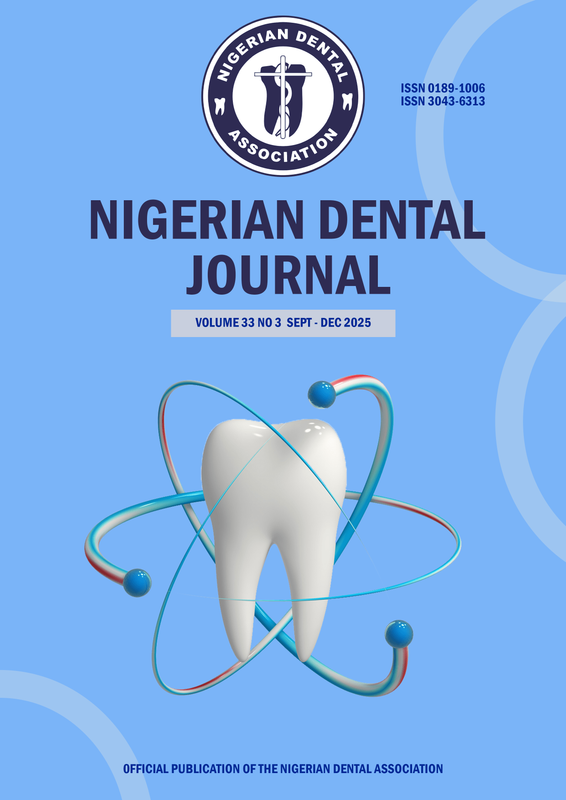The practices and effects of tooth mutilation in a Nigerian rural population
DOI:
https://doi.org/10.61172/ndj.v19i2.126Keywords:
Tooth mutilation, Rural communities, NigeriaAbstract
Objective: The study was carried out to investigate the practices and effect of tooth mutilation in two rural communities in Nigeria.
Method: A structured questionnaire was administered on subjects in two rural communities in the Niger-Delta area of Nigeria. The questionnaire was used to collect demographic information of the subject and the reasons for, methods of tooth mutilation and its effects on the oral health of participants were recorded. Data obtained were coded and computerized analysis was performed using SPSS version 17.0.
Result: A total of 37 (36.3%) participants out of 102 patients who visited the dental clinic during the free dental care mission completed the questionnaire. There were 9 (24.3%) male and 28 (75.3%) female in two communities of Okorenkoko and Agudama. Most of the participants received information concerning this act through family members or friends with various reasons given for engaging in this act. Also, various deleterious effects of tooth mutilation was found with 25 (67.6%) experiencing pain during the process, 12 (32.4%) noticed progressive tooth discolouration while 8 (21.6%) experienced signs of infection with either pus discharge or upper lip swelling or both.
Conclusion: Rural dwellers, irrespective of level of education are still indulging in mutilatory practices to the dental tissues and on the long run, most mutilated teeth, would most likely become symptomatic and may result into extraction worse sequelae.
Downloads
Downloads
Published
Issue
Section
License
Copyright (c) 2011 G. E. Ukegheson, O. A. Akadiri

This work is licensed under a Creative Commons Attribution 4.0 International License.
Open Access Statement
- We became fully Open Access since January 2023.
- Our new and archived materials are available free of charge on open basis and under a Creative Commons license as stated below.
Copyright statement
Copyright © 1999 The authors. This work, Nigerian Dental Journal by Nigerian Dental Association is licensed under Creative Commons Attribution 4.0 International License.

